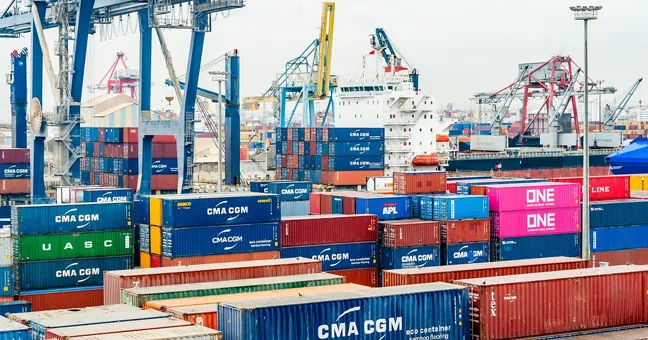Contact
RA Benjamin Schreiber
Leonrodstr. 54
D-80636 Munich
(Click for view on Google Maps)
A lawyer for freight forwarding contracts and freight contracts is an indispensable partner for companies and private individuals who regularly deal with transport and logistics services. This is because specific legal regulations apply in the complex world of goods transport, which play an important role both nationally and internationally. We explain the differences between forwarding contracts and freight contracts, address typical disputes and show when the assistance of a specialised lawyer is advisable or even necessary.

The legal framework of forwarding and freight contracts is complex, liability-laden and highly relevant in practice. Companies that regularly ship goods or have goods transported should familiarise themselves with the legal principles at an early stage - and if in doubt, consult an experienced lawyer for freight forwarding and transport law. Professional advice can not only save money and time in the event of a dispute, but can also help to avoid legal pitfalls in advance and ensure smooth processes in the supply chain.
Contact us for legal advice/initial consultation - in person, phone, video call.

In principle, the forwarding contract and the freight contract are two different types of contract that are regulated in the German Commercial Code (HGB) - specifically in Sections 407 et seq. HGB (freight contract) and §§ 453 ff. HGB (contract of carriage).
A freight contract is a contract of carriage. The carrier undertakes to transport goods from one place to another in return for payment. The focus is on the actual performance of the transport. Typically, the carrier is also the party that transports the goods itself or has this done by subcontractors (e.g. other haulage companies). As a rule, the carrier is liable for damage or loss of the transported goods during transport, unless force majeure or other exclusions of liability apply.
The forwarding contract, on the other hand, is a contract of agency. The freight forwarder does not undertake to transport the goods directly, but to organise the transport. This means that the freight forwarder commissions carriers, takes care of the selection of suitable means of transport, draws up consignment notes and, if necessary, organises storage, customs clearance and insurance. Only in certain cases (e.g. fixed-cost forwarder, §459 HGB) does the forwarder itself also assume carrier responsibility.
The distinction is not always easy to make in practice - which plays a key role in contract design and liability issues.
In practice, legal conflicts repeatedly arise that require legal advice or even judicial clarification. The most frequent points of dispute include
A lawyer specialising in transport and forwarding law can support clients in the drafting of contracts, the legally compliant handling of orders and in the event of a dispute in court. Legal expertise is just as important as industry knowledge. Especially in the logistics sector, which is characterised by tight time frames, international interdependencies and high liability risks, competent legal advice can be crucial.
The services of a specialised lawyer include
Expertise is not about holding titles - it is about constant, professionally correct, practical work over many years.
Every case is different - as a lawyer, every case requires its own individual approach in order to do justice to the subject matter and the client.
Legal standards alone do not solve cases - efficient communication between lawyer and client, but also with the opposing party, ensures real results.
Serving various areas of law with specialised lawyers to represent personal and economic interests.
We stand for personal advice, constant availability and professional expertise when it comes to transport law in Munich.
+49 (89) / 139 284 10